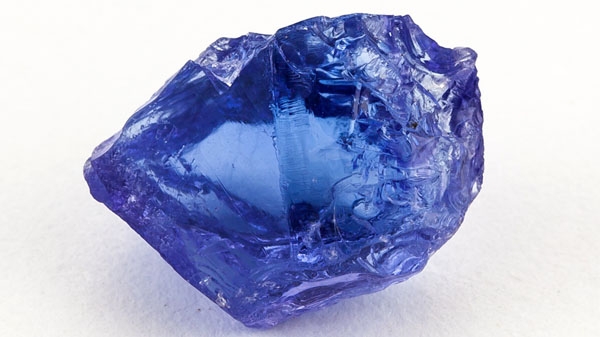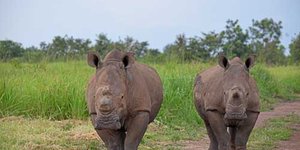Like this article?
Go on, give it a kudu!

Published on May 22 2013
Written by:
Jill W.
2519 views
When visiting Tanzania, you might be tempted to purchase tanzanite, a mesmerising deep blue gemstone that is only found in one place on earth, the Merlani foothills of Mt. Kilimanjaro. Traditionally used as a symbol of new life among the Masai Tribesmen, tanzanite is a thousand times rarer than diamonds and greatly prized for use in jewelry. Technically a blue form of zoisite, Tiffany and Co. chose the name tanzanite, drawing on its country of origin, to market this newly found 'gem of the 20th century.
Rough tanzanite is a dull reddish-brown color but once heated to 600 degrees Celsius, it becomes a brillant blue-violet. Tanzanite was discovered by accident in 1967 when Masai tribesmen out on a bushwalk discovered a mineral deposit in which a lightning strike had caused a bush fire and heated the tanzanite to show its purplish hue. Because of its rarity, quality Tanzanite is considered a 'blue chip' investment; however, most visitors purchase it as a special souvenir of their visit to Tanzania.
While there is no question that tanzanite is a beautiful gemstone, concerns are often raised regarding the ethics of the mining industry. Currently, the majority of the mining interests are owned through Richland Resources by a company called TanzaniteOne, a company that has undergone much international scrutiny. TanzaniteOne has an excellent safety record, employs no child labour, and has collective wage bargaining for its 650 employees.
In 2001, ABC news reported of a possible terrorism link with tanzanite funding operations such as Al Qaeda, but no solid proof was found to substantiate this claim. Since 2003, the Tanzanian government has disallowed the sales of unprocessed tanzanite; gems are cut and polished in local facilities which provides an economic benefit to the community. As part of the government regulations of the mining industry, a portion of proceeds from all tanzanite sold is earmarked for social upliftment projects in Tanzania.
As with any significant purchase such as precious gemstones, one should always do one's research in advance. Know your seller and learn how what practices they employ to ensure the quality of the product and the relationship with their suppliers. To be sure you have the real deal, your tanzanite should be graded by an Independent Gemological Laboratory (separate from the vendor's own lab) and should be accompanied by a certificate. You should also look for the non-profit Tanzanite Foundation's Mark of Rarity, which ensures both the quality of your purchase as well as its ethical route to market. There are no shortage of vendors in Arusha and beyond, but always be sure that you have found the gem you truly wish to take home and own.
Tanzanite is very rare and supplies are not expected to last more than a few decades. While tanzanite is a recently discovered precious mineral, the fact that is is only found within a four kilometre square area means the potential supply is severely limited by geography and geology. New mining techniques may allow deeper mining to be done, but there is still a finite amount of this mineral that can be made available. The Tanzanian government carefully monitors mining operations for the best possible economic benefit and sustainable mining practices for as far into the future as the mines can last. Conditions do not exist to create tanzanite elsewhere or by other means, making tanzanite truly a uniquely African souvenir.
Has been on: 0 safaris
I like to 'do it myself' to feel like I'm truly traveling. It's my love of preparation and details that led me to work in the travel industry. After a dozen years in retail sales and agency management, I'm now a certified tour guide, based out of Portland, Oregon. My previous position was in safari sales and involved writing and marketing as well. Thus, I've also transitioning into travel writing, and safaris is indeed a topic I know well!
© Your African Safari Ltd, All rights reserved.
Your African Safari is a safari-planning and safari review site. It was created to help support a healthy African wildlife population. All reviews are vetted before being approved and only ethical tours are published

Garamba National Park—an anchor of hope in the Democratic Republic of Congo
Published on January 09 2025
By: R.W.

Namibia imposes new visa requirements
Published on July 25 2024
By: yourafricansafari.com

Do I really need travel insurance or travel protection for my safari?
Published on July 30 2024
By: yourafricansafari.com